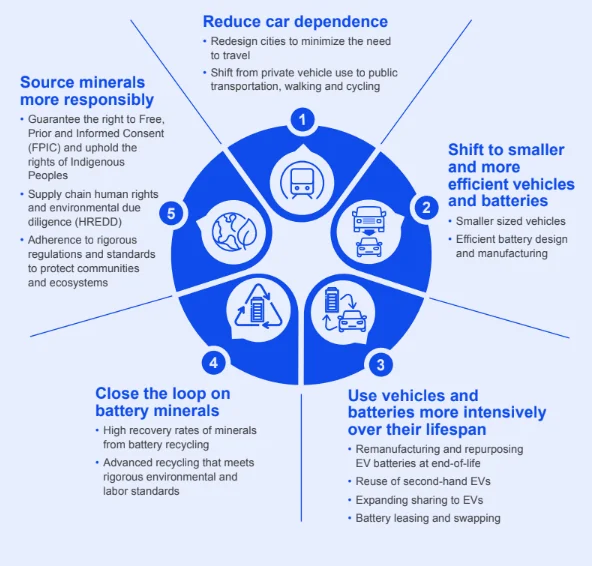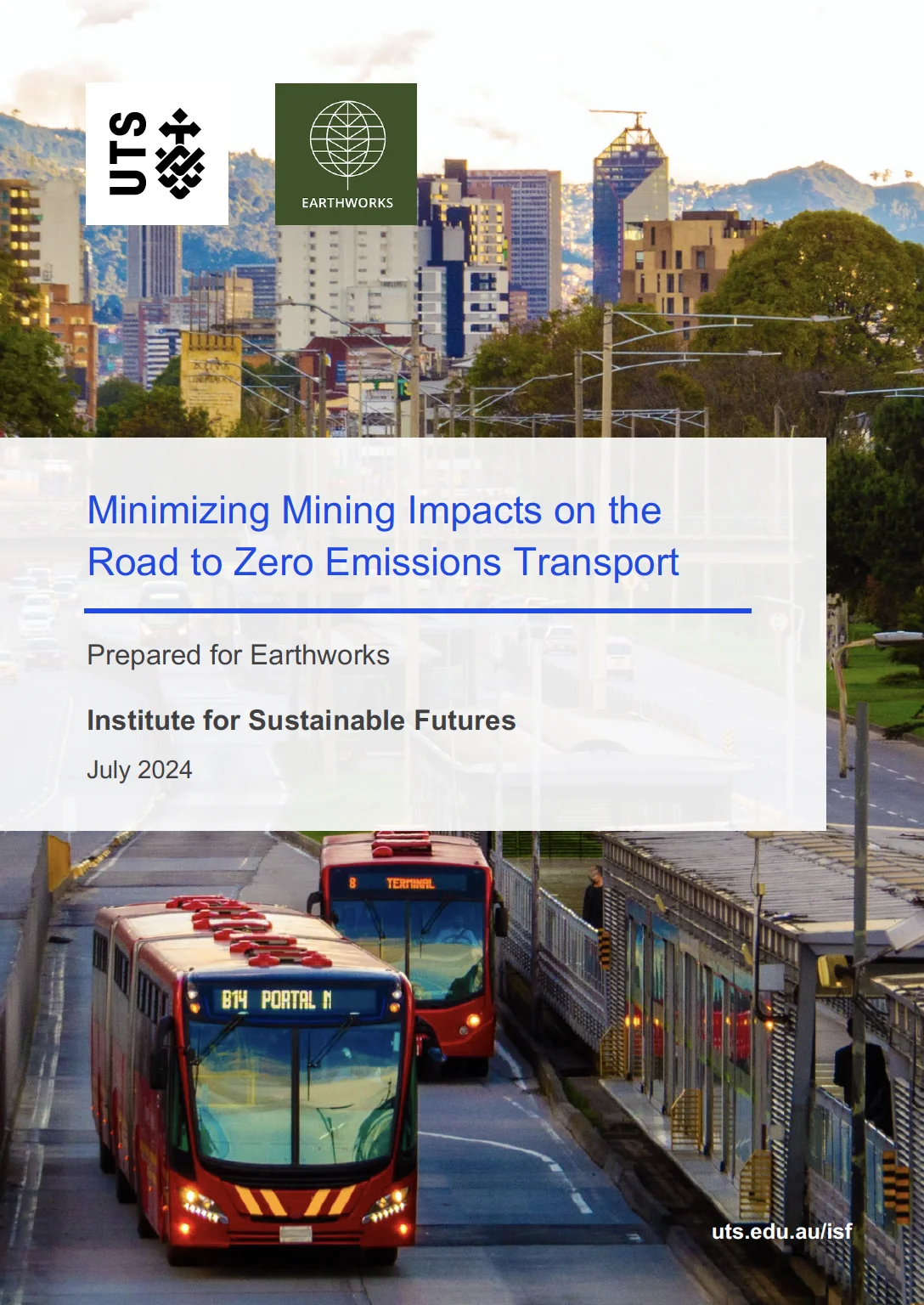While EVs are an important part of decarbonizing passenger road transportation, they are mineral intensive. EV batteries require hundreds of pounds of minerals such as cobalt, lithium, and nickel, which today are almost exclusively mined or extracted from the ground at great cost to the local environment and those that depend on it. This report outlines specific measures to avoid the harmful environmental and social impacts associated with increased mineral mining for electric vehicles batteries while maintaining the transition from fossil fuel-based transport systems.
The impacts of mining related to the energy transition and EVs are becoming more widely understood, yet there is very little research on what can be done to reduce these impacts. The report, based on in-depth analysis and interviews with experts from around the world, shows that there are a number of practical, accessible strategies available to minimize the mining impacts associated with EVs. It includes six in-depth case studies that demonstrate how the technology and strategies to reduce mineral demand exist and are already being implemented around the world.
The report emphasizes that a socially just transition is essential, ensuring the benefits of low-emission transport are equitably shared and do not disproportionately impact vulnerable communities. It identifies five practical pathways to transition road passenger transportation to net-zero emissions in a way that minimizes mineral demand and mitigates mining impacts:

The report concludes that the technologies to support most of these strategies are readily available, and while some face political and/or social or economic barriers, there are many interventions that can make swift impacts. This could include policy interventions, such as incentivizing smaller batteries; mandatory recycling of batteries; and extending subsidies to e-bikes and second-hand EVs. There are also innovative circular economy business models, such as battery swapping and vehicle refurbishment.
For more information:



